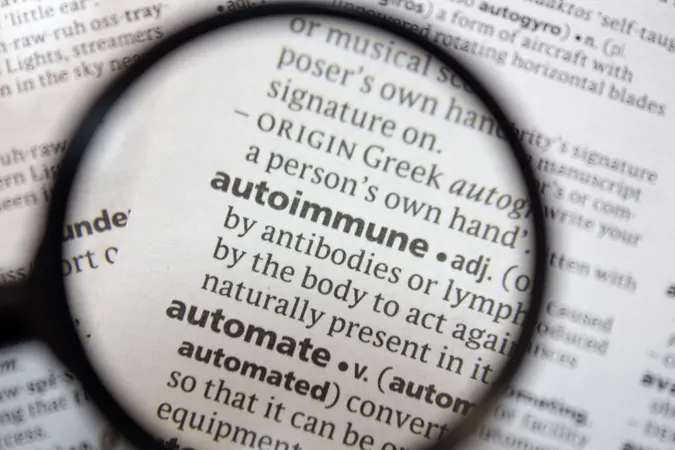
Breakthrough Genetic Test Can Diagnose Brain Tumors in Just Two Hours!
2025-05-21
Author: Jia
Every day, 34 people in the UK receive the life-altering news that they have a brain tumor. That’s over 12,000 diagnoses a year, with the most aggressive types often leading to survival rates of less than a year. The traditional diagnostic process is lengthy and complex, leaving patients anxiously awaiting results for 6-8 weeks—a delay that can hinder timely treatment and decrease their chances of survival.
However, a groundbreaking team of experts in Nottingham has developed an ultra-fast genetic testing method that promises to transform the landscape of brain tumor diagnosis. This innovative approach can deliver results in as little as two hours! Imagine having critical diagnostic information available during surgery—this could revolutionize surgical strategies and patient outcomes.
Meet the Innovators Behind the Breakthrough
Leading the charge is Dr. Stuart Smith, a Neurosurgeon from the University of Nottingham. He emphasizes the urgency of timely diagnoses: "Patients find waiting for results incredibly distressing—and as we know, every moment counts. With our new technology, we can provide answers in a fraction of the time, significantly impacting clinical decision-making right at the moment of surgery."
Medically, the diagnostic journey begins with an MRI scan to identify a tumor, followed by surgical sample collection. Traditionally, this sample is sent to centralized laboratories that take weeks to analyze DNA for abnormalities and classify the tumor. The old methods relied heavily on visual inspection by experts, a slow process hampered by technological limitations.
Rapid Testing: The Key to Effective Cancer Care
Enter Professor Matt Loose, a biologist at Nottingham, who has pioneered a rapid sequencing technique. Utilizing Oxford Nanopore Technologies, his method enables the team to focus on specific DNA segments with unprecedented speed and accuracy. No longer do they need months for processing; they can streamline classifications and shed light on tumor types swiftly.
This revolutionary approach uses a software tool called ROBIN, which sequences DNA through an innovative detection method as single molecules pass through tiny nanopores, allowing multiple regions to be analyzed simultaneously.
A Game-Changer for Patients and Healthcare
This rapid testing method not only quickens diagnosis but also comes at a lower cost—around £450 per person, significantly less than existing testing methods. As Professor Loose points out, "We’re eliminating the need for numerous separate tests while providing crucial information faster than ever before."
Dr. Simon Paine, a Consultant Neuropathologist at NUH, describes this technique as 'game-changing,' highlighting its accuracy and rapid availability. The goal now is to roll out this testing across NHS Trusts nationwide.
Patients Share Their Experiences
Charles Trigg, a patient diagnosed with an aggressive glioblastoma, underscores the importance of immediate results. Previously, he faced an agonizing 8-week wait for test outcomes; with this new method, he anticipates results in just a week. "Knowledge is power,” he says. “It may not always be the information I want to hear, but having certainty makes life manageable during such a tough time. This breakthrough in science and medicine is simply phenomenal!"
As the BRAIN MATRIX Trial, funded by the Brain Tumour Charity, continues to explore how this technology can match patients to personalized clinical trials, a bright new horizon for brain tumor diagnostics—one characterized by speed, accuracy, and hope—has emerged.




 Brasil (PT)
Brasil (PT)
 Canada (EN)
Canada (EN)
 Chile (ES)
Chile (ES)
 Česko (CS)
Česko (CS)
 대한민국 (KO)
대한민국 (KO)
 España (ES)
España (ES)
 France (FR)
France (FR)
 Hong Kong (EN)
Hong Kong (EN)
 Italia (IT)
Italia (IT)
 日本 (JA)
日本 (JA)
 Magyarország (HU)
Magyarország (HU)
 Norge (NO)
Norge (NO)
 Polska (PL)
Polska (PL)
 Schweiz (DE)
Schweiz (DE)
 Singapore (EN)
Singapore (EN)
 Sverige (SV)
Sverige (SV)
 Suomi (FI)
Suomi (FI)
 Türkiye (TR)
Türkiye (TR)
 الإمارات العربية المتحدة (AR)
الإمارات العربية المتحدة (AR)